Members of the SMART Transportation Division’s Washington State Legislative Board have been quite busy in recent weeks.
Working with the board members and state emergency management officials, state senators and representatives of the Washington State Legislature Jan. 29 introduced six bills that could have a direct impact on Transportation Division-represented railroad employees and the safety of the communities in which their trains operate.
House Bill 1809 and Senate Bill 5697 re-establish state-mandated minimum railroad crew-staffing levels on all trains operating in the state.
Also introduced were a yardmaster hours of service bill in both the House of Representatives and the Senate and a rail crew transportation safety bill.
Under the proposed crew-staffing legislation, all trains and yard-switching assignments will be staffed with no less than two qualified employees. Trains designated as hazardous material trains of 50 cars or less, will be staffed with no less than three qualified employees, with the thirdemployee assigned to work on the rear of the train in a position to be able to safely observe and monitor the train.
Trains designated as hazardous material trains of 51 cars or more will be staffed with no less than four qualified employees, with two employees assigned to work on the rear of the train in a position to be able to safely observe and monitor the train.
Hazardous material trains are defined utilizing the current national standards adopted by Department of Transportation and all Class I carriers. The State Utility and Transportation Commission can direct carriers to exceed the minimum requirements if specific conditions affecting safety or security necessitate additional crewmembers.
Hearings on both bills have been tentatively scheduled for Feb. 9 in the House Labor Committee and the Senate Commerce and Labor Committee, Transportation Division Washington State Legislative Director Herb Krohn said.
“Our workers know how to run these trains safely, but the railroad refuses to provide adequate staffing, exposing the public and railworkers to death and injury. These bills simply restore Washington State’s commonsense safety standards,” Krohn said.
“We looked at what went wrong in each of the catastrophic explosions and the close calls, and it’s clear that one or two people simply can’t monitor and safely operate these dangerous cargos. Adding even one more person to a train, particularly at the back of the train, will save lives.”
H.B. 1809 was introduced by State Rep. Larry Haler (R-Richland) and currently has a total of 33 additional co-sponsors.
House Transportation Committee Chairman Judy Clibborn (D-Mercer Island) said, “This bill just requires a minimum level of staffing because an adequately staffed train is a safe train.”
S.B. 5697 was introduced by State Sen. Linda Evans Parlette (R-Wenatchee), Chairman of the Senate Majority Caucus. It currently has 23 additional co-sponsors.
“Safely moving goods through Washington State is in everyone’s interest. The public is counting on us to ensure that trains, no matter what they are transporting, are safely operated,” Evans Parlette said.
“I’ve worked as a conductor for 10 years with a perfect safety record and this bill will make trains safer,” said Local 324 Chairperson and Legislative Rep. Paul McGill of Seattle.
The text of the bills read, in part, “Any person, corporation, company, or officer of the court operating any railroad, or part of any railroad or railway within the state of Washington, and engaged as a common carrier, in the transportation of freight or passengers, who violates any of the provisions of section 3 of this act are guilty of a misdemeanor, and upon conviction shall be fined not less than one thousand dollars and not more than one hundred thousand dollars for each offense.”
Krohn said the bills are in response to concerns raised by emergency management officials who have become aware that the crewmembers on the head end of trains, in most cases, cannot see their train beyond a limited sight distance. Recognizing that the train crews are the first responders, they believe that trains that pose a significant risk to the public need crewmembers on the rear of the train, in a position to be able to see the train and take appropriate action if something goes wrong.
Krohn said he attended a freight mobility roundtable discussion last year featuring a presentation on oil-train safety from emergency responders. “Not aware of who I was, Director of the Seattle Office of Emergency Management Barb Graff mentioned the BNSF Railway one-person crew contract proposed to the members of General Committee of Adjustment GO 001 last year. She said she was glad that it was voted down and said two-person crews were not enough on hazmat trains.”
That led to Krohn and members of the state legislative board working with emergency management officials to get the ball rolling on the two bills.
“As an emergency manager, I plan for disaster and work for safety. Human eyes are key to safety and proper staffing is important, which is why I support this bill,” said Dominic Marzano, emergency manager for Kent, Wash., and division chief of the Kent Fire Department – Regional FireAuthority.
Noting that railroad yardmasters are required to work excessively long hours by railroad carriers, H.B. 1284and S.B. 5696 will prohibit a yardmaster to “remain or go on duty for a period in excess of twelve consecutive hours…An employee may not remain or go on duty unless that employee has had at least ten consecutive hours off duty during the prior twenty-four hours.”
If the state’s Utilities and Transportation Commission finds that a Class I carrier violates the provisions of these bills, if passed, “the commission may assess a civil penalty of not less than ten thousand dollars and not more than fifty thousand dollars.”
Krohn said that yardmaster and BNSF GO 341 General Chairperson Jeffrey Sellman was the impetus behind these bills and worked tirelessly to advance them in the legislature.
Finally, H.B. 1808 and S.B.5797 will, if passed, “regulate charter party carriers providing railroad crew transportation and every contract crew hauling vehicle with respect to the safety of equipment, driver qualifications, insurance levels, and safety of operations. The commission must adopt rules and require reports as necessary to carry out this chapter regarding contract crew hauling vehicles and establish federal motor vehicle safety standards for contract crew hauling vehicles, regardless of seating capacity, as the minimum safety standards.”
“I am really excited about how we’ve advanced these bills in the legislature,” Krohn said. “They are reasonable bills that won’t break the bank of the railroads. They are a reasonable precaution to protect the public and our members.”
Krohn encourages Transportation Division members and all concerned railroad employees to contact their lawmakers and seek their support of these legislative proposals.


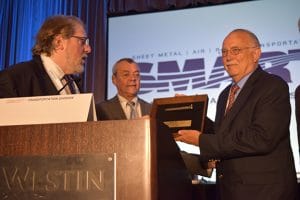
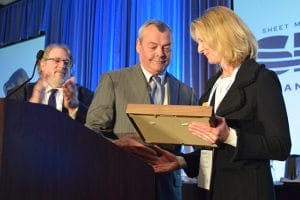
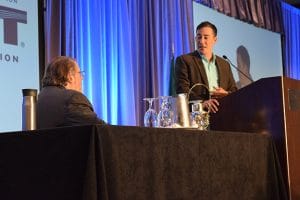
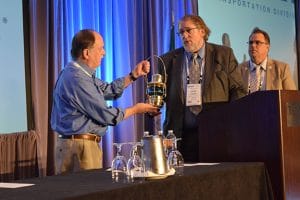
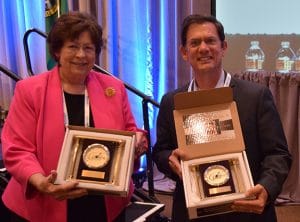


 The state House on April 14 passed its version of a bill that would impose new safety regulations on oil shipped through Washington by rail, boat and pipeline.
The state House on April 14 passed its version of a bill that would impose new safety regulations on oil shipped through Washington by rail, boat and pipeline.